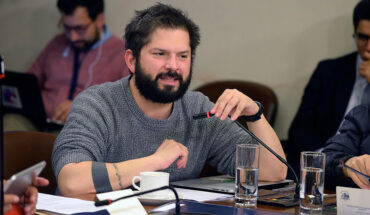
The case of the young Amber Cornejo, has caused the deepest of commotions at the national level and must make us reflect on the effectiveness, efficiency and opportunity of state action, where traditional theory suggests that the COMMON WELL is the ultimate end of the state, and clearly in this case, as in many others, it seems that the only thing that matters is mere bureaucratic/regulatory compliance, and textual attachment of the law, becoming quasi-pathological bureaucratic behavior, which lacks the slightest consideration of the common good, that it refers to people, their rights and how the State guarantees these, which on the basis of testimonies and evidence, did not happen with Amber.
The State is a legal artifact that organizes society, through the Constitution and the laws, considering the purest Tomist tradition “the law is but a prescription of reason, in order of the Common Good, promulgated by one who takes care of the community”.
In this same sense, our Constitution in article 1 states that “The State is at the service of the human person and its purpose is to promote the common good, for which it must contribute to creating the social conditions that allow each and every member of the national community to carry out the greatest spiritual and material realization possible, with full respect for the rights and guarantees that this Constitution establishes”.
We fully agree that one of the principles governing the rule of law is that of legality, understanding that the law as a positive structure, which protects us from the arbitrary power of a tyrant, from a system of abuses and gives us certainty regarding the actions of the Powers of the State and its organs, so strict compliance with this principle is fundamental. However, it seems to us more than obvious that political authorities, public officials, courts and higher courts are not law enforcement as automatons, but that there is a process of rationality, intelligence, efficiency and effectiveness, which aims to achieve the long-awaited common good.
With this in mind, last week we learned of a letter, where 36 lawyers defend the act of the chairwoman of the commission who released a multiple murderer, emphasizing the attachment to the legality of the judicial decision adopted, which is certainly the case, but nothing is said that if the commission had revised the gendarmerie report more deeply, it would have asked for some additional report to form conviction, it would also have operated within the current legality, that is, judges were not asked to break the law, they are asked to be diligent and intelligent in the application of the same.
In the case of the chairwoman of the Parole Commission, Judge Silvana Donoso, we know that in other cases she has acted diligently in the line of judicial activism, which, without judgment on her rulings, is of the attention that her guaranteey and activist spirit was no more diligent to more carefully review bustamante’s freedom case.
But it adds up and goes on, gendarmerie has been accused that his socio/psychological reports were “copy paste”, so they were eventually unbelievable, that is, gendarmerie complied with the law, in handing over his reports, but would have operated with total lack of diligence.
SENAME also complied with the law, but failed to protect Amber, which roamed various service programs, without receiving the support it needed, which are otherwise outsourcing, poor oversight systems, and management that clearly do not fulfill its role of protecting vulnerable children. In the case of SENAME, after learning of the supreme court’s multiple reports on systematic violations of children’s rights in outsourced centres, the deaths we met a few years ago, its institutional mission “Contributing to the prevention, promotion, protection and restitution of the rights of children and adolescents violated in their rights, as well as to the social accountability and accountability of young people who violated the law, …”, is a very bad irony. That is, SENAME complies with the law, a political agreement was made for children, but so far we continue with a totally poor and negligent protection system, of which this young woman was a victim like thousands of other minors nationally.
All of the above leads us to two capital reflections: on the one hand, the quality of the laws emanating from the various powers of the competent State, which in many areas are insufficient in their content and scope, often arise from the situation, have technical deficiencies or arise from misunderstood economic conceptions, such as the outsourcing of public services that generally do not point to the Common Good, but are only profitable for the private serving.
On the other hand, public management cannot be limited to the automatic application of the norm (it uses the concept of management) but also requires will, intelligence, diligence, efficiency and effectiveness, in the essential understanding that the State is the primary, principal and final call to protect the fundamental rights that enable the longed-for COMMON GOOD to be achieved.
In short, the role of the state continues to fail and the fault becomes more serious, when those who should have exercised a preventive role, hide in that they complied with the law and procedures, as wanting to avoid their responsibility in the chain of complicit errors that, like a cursed path, generated the conditions that allowed the killer to take away Amber’s life , a vulnerable child. As he once said, Fouché “worse than a crime, it was a mistake”
The content poured into this opinion column is the sole responsibility of its author, and does not necessarily reflect the editorial line or position of El Mostrador.





